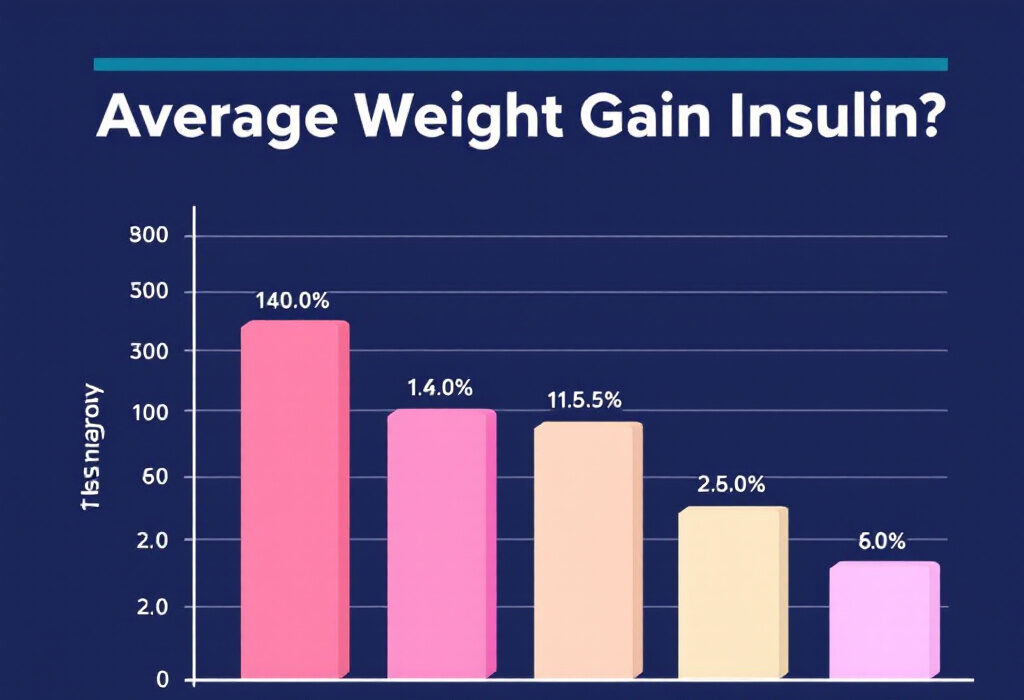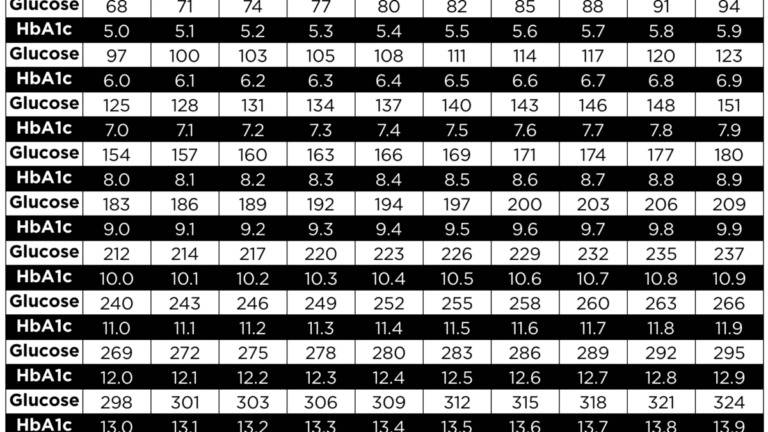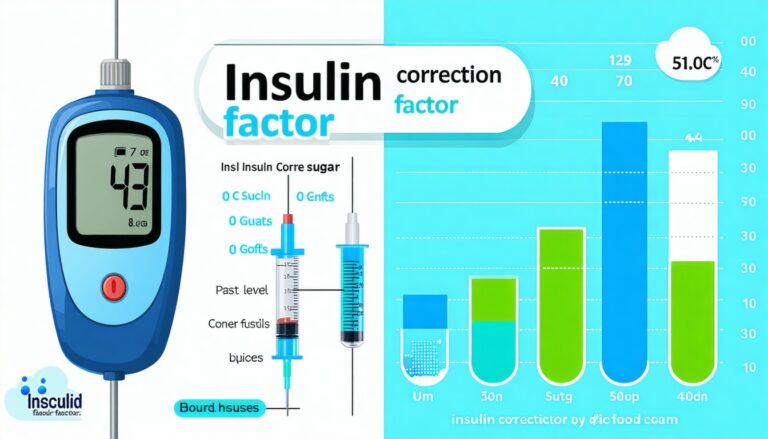Average Weight Gain on Insulin: A Friendly Guide
If you have diabetes and take insulin, you may have heard about or even experienced the “average weight gain on insulin.” While some weight gain is common, especially when you first start therapy, there are actionable steps you can take to feel your best. Below, you’ll learn why insulin contributes to those extra pounds, how much weight people typically gain, and practical ways to minimize or even avoid it altogether.
Understand Average Weight Gain On Insulin
It’s not just you. Many who rely on insulin notice the number on the scale going up. Researchers have found that weight gain can range from about four pounds to more than 13 pounds, which may feel discouraging if you’re striving to keep your weight under control (Mayo Clinic). Fortunately, understanding why this happens is the first step toward managing it.
Why Insulin Influences Weight
Insulin is a hormone that helps move sugar from your bloodstream into your cells. If you’re taking in more calories than your body needs, insulin will help store any extra sugar as fat. This means that if you frequently overshoot your calorie needs — including times when you might snack more to avoid low blood sugar — your body will likely convert the extra energy into stored fat.
Common Factors At Play
- Improved glucose control. When insulin lowers your blood sugar, you may retain more calories instead of excreting them in urine.
- Fear of hypoglycemia. To avoid low blood sugar, you might eat more than intended or choose foods high in carbs.
- Changes in medication. Certain diabetes medications can encourage weight gain, while others may help you lose.
How Much Weight Do People Typically Gain?
Studies vary, but some show individuals gain an average of 3 to 9 kilograms (about 6.6 to 19.8 pounds) in the first year of insulin therapy in type 2 diabetes. Another study noted an average gain of 1.78 kg in just one year, with about 24% of participants gaining at least 5 kg (Obesity Medicine Association). These numbers don’t spell doom for your health — instead, they highlight how important it is to stay mindful of your eating and exercise routines.
If you’re wondering whether insulin itself is the main culprit, check out our article, does insulin make you gain weight for a closer look at this common question. You can also learn more about how insulin resistance factors into the equation by reading does insulin resistance cause weight gain.
Practical Strategies To Manage Weight
Keeping extra pounds at bay while taking insulin is possible. Here are some simple, effective methods for balancing your blood sugar and your weight goals.
1. Adopt A Balanced Meal Plan
Choose a variety of foods, especially nonstarchy vegetables, lean protein, and healthy carbohydrates. One helpful guideline is to fill half your plate with nonstarchy veggies, a quarter with protein, and a quarter with starchy foods or whole grains (source).
- Keep refined carbs to a minimum by limiting desserts, white bread, and candy.
- Control portions by using smaller plates or measuring cups.
- Avoid “second helpings” unless you’re truly hungry.
2. Keep Moving
Getting at least 150 minutes a week of moderately intense aerobic activity is a smart goal. This can be brisk walking, swimming, or even dancing. Combine it with muscle-strengthening exercises twice a week to boost your metabolism and help manage blood sugar (source).
- Vary your workouts so you don’t get bored.
- Consider working with a fitness instructor who understands diabetes management.
- Have a plan for preventing low blood sugar, such as a quick snack when you exercise longer or at higher intensity levels.
3. Adjust Insulin Wisely
If you’re more active than usual, you might need to adjust your insulin dosage to avoid frequent low blood sugar episodes. Talk to your healthcare provider about how to safely tweak your regimen. This helps maintain stable blood sugar without extra snacks or calories.
4. Monitor Your Calories
Tracking what you eat can be eye-opening. By writing down meals or using a calorie-tracking app, you’ll see patterns you might easily miss. Understanding which snacks or beverages add hidden calories will help you reduce overall intake and cut back on foods that cause spikes.
5. Stay Connected With Your Care Team
Your doctor, dietitian, or diabetes nurse educator can be a great support system. They’ll guide you on meal planning, medication adjustments, and practical tips for everyday life. If you’re not seeing consistent progress, talk to your healthcare team about possible medication tweaks or additional therapies that may give you better results.
Key Takeaways
- Some weight gain is common when you start insulin therapy.
- Coping strategies like a balanced diet, regular exercise, and careful insulin adjustments are often effective.
- Managing your weight while taking insulin requires consistent effort and communication with your healthcare providers.
- Keep a watchful eye on portion sizes and total calorie intake, especially high-glycemic foods.
- If you’re struggling, consider seeking extra help from a registered dietitian or certified diabetes educator.
By following these steps and tuning in to how your body responds, you can stay in control of both your insulin management and your weight. You don’t have to accept unwanted pounds as an inevitable part of treatment. With the right balance of nutrition, physical activity, and medical guidance, you can feel confident and healthy on your diabetes journey.








Leave a Reply